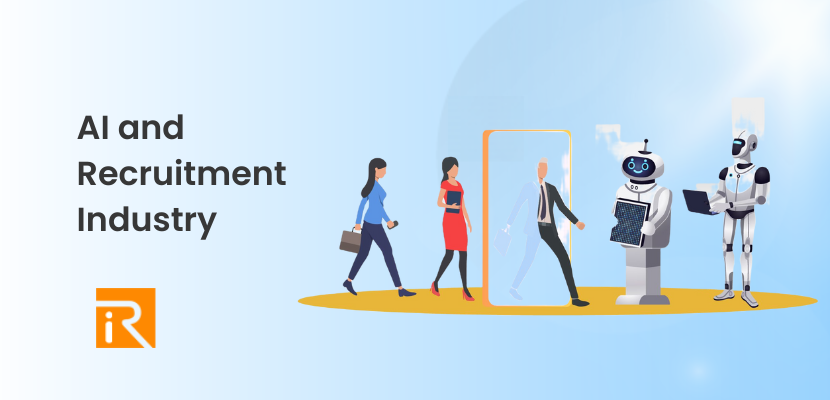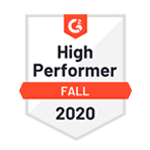Companies are rapidly shifting their recruitment mode to Artificial Intelligence (AI) recruitment especially after COVID-19. AI has rapidly evolved in recent years, revolutionizing industries like recruitment. The global AI market is projected to hit $521.3 billion by 2028. In recruitment alone, the AI market is expected to reach $890.51 million by 2028, as per Facts & Factors report.
However, use of Artificial Intelligence in recruitment remains questionable from various point of views.
The question is whether it is fair to trust machines with important decisions that can mark grave influence over individuals’ lives. Especially when we are unaware of AI systems’ reasoning, and confused about how Artificial Intelligence reaches to conclusions.
On the other hand, it’s also considerable; what if AI is actually better than humans in making recruitment decisions. Humans are prone to biasness and prejudice and Artificial Intelligence can solve this issue. Humans are prone to biasness and Artificial Intelligence can eliminate this chance completely.
In this article you will find different aspects of Artificial Intelligence, its benefits, possible dangers and how to overcome them.
What is AI Recruitment?
AI recruitment, also known as AI-powered recruiting or AI in hiring, is process of application of artificial intelligence technology for recruitment process. It involves using advanced algorithms and machine learning techniques to automate time-consuming tasks, improve candidate sourcing and screening, enhance decision-making, and provide analytics.
Artificial Intelligence helps organizations to reduce biases, increase candidate quality and efficiency and ultimately make better-informed hiring decisions.
How is AI Transforming Recruitment?
AI is transforming recruitment in many ways. Some of the most significant changes include:
- Helping with repetitive tasks: Some of recruitment tasks are boring and repetitive such as sorting out resumes and scheduling interviews. AI can do this job more quickly and efficiently than a human recruiter.
- Candidate Matching: AI can also match candidates with job openings based on their skills, experience, and qualifications. This can help companies identify the best candidates for a particular role, even if they may not have applied for the job.
- Candidate Engagement: AI-based tools such as chatbots and personalized email campaigns makes communication easy for candidates. This can help keep candidates engaged throughout the hiring process, leading to a more positive candidate experience.
- Sourcing Candidates: AI can help with sourcing qualified candidates from different social and job platforms. It can do so by matching the keywords of skills and qualification with candidate information.
What are the Benefits of Artificial Intelligence in Recruitment?
- Saves times of Recruiters: One of the primary benefits of AI in recruitment is time-saving. By doing repetitive tasks such as resume screening, candidate matching, and interview scheduling, recruiters can save a significant amount of time. They can use this time to doing some other productive work such as
- Cost-Effective: AI can also save recruitment cost. In traditional recruitment companies have to spend money on advertising, recruiting fees, and salary costs for recruiters. However, by automating tasks, companies can save money and reduce their overall recruitment budget while still hiring the best candidates for the job.
- Finding Perfect Candidates: Al can help companies to find the candidates they exactly need. It can find sort out candidates on the basis of their experience, qualification and other required skills. It does so by finding and matching keywords with job requirement and calculating year of experience etc.
- Improved Candidate Experience:As AI-based chatbot guides candidates throughout the process, it provides a better candidate experience. It increases candidate satisfaction and create a positive brand image. This can help companies to attract and retain top talent.
- Eliminating biasness: Human beings are prone to biasness. It’s unavoidable. However, AI can ignore personal factors such as gender, race, and ethnicity and can make sure that candidates are evaluated solely on the bases of their skills and qualifications. This can help companies to create a more diverse and inclusive workforce.
- Fighting poverty A skill-based and unbiased recruitment process can make corporate sector do wonders. It can help marginalized and oppressed but skilled people to get the jobs they are best at. By including more people from marginalized communities can, in turn, create an inclusive workforce.
The Challenges of Artificial Intelligence in Recruitment
Artificial Intelligence in recruitment is a double-edged sword. While it can offer efficiency and convenience, it can also present several challenges.
- AI can be biased too: One of the main challenges is the potential for bias in the data used to train the algorithm. If the data is biased, AI can perpetuate that bias and discriminate against certain groups of candidates. For example, if the data is skewed towards male candidates, the algorithm may end up selecting more male candidates than female candidates.
- Recruiting needs to be subjective sometimes: AI spots candidates purely on algorithmic basis and while doing so it can miss suitable candidates. For instance, a candidate can be lacking in one skill or area but might be too good in the other. A recruiter can decide better in this regard.
- Lack of Human Touch: Another challenge is the lack of human touch. While AI can automate various tasks such as resume screening and scheduling interviews, it cannot replace human intuition and interaction. This can lead to a lack of personalization in the recruitment process, which can turn off some candidates.
- Chatbot cannot handle complex queries: Chatbot and other similar tools are based on various answers. But of course, these answers are limited and can never handle the complex queries. It can create a big communication gap between recruiters and candidate.
- Technical Challenges: Moreover, implementing AI recruitment technology requires technical expertise and resources. Companies that do not have the necessary technical know-how or resources may find it challenging to adopt AI recruitment technology.
- Suitable candidates can be missed: In certain context human intuition and judgment can judge a candidate better than AI. A recruiter will keep in mind complex nature of company’s requirements, AI can reduce that requirement to number and algorithm and extract wrong data.
How to ethically use Artificial Intelligence (AI) in Recruitment?
All the concerns about AI tricking hiring managers to do unjust decisions are valid. However, if we take certain necessary precautions, we can use AI for our best. Here some ways to ethically win AI’s use and ripe its fruits.
- Control data biasness: It’s very easy to feed AI biased data and get biased results because ultimately AI works on the basis of data it is being fed. Organizations should use to create unbiased data sets which are free from racial or gendered bias. In this context AI is the best solutions to control such biasness in economy and we can create a just and free corporate sector.
- Be thoroughly aware about AI: Organizations need to be aware about how AI works and where it can go wrong. It’s necessary to communicate all its challenges and benefits to all the hierarchies of company involved in hiring. Ethical boundaries for AI use must be predefined and all the concerned people must be aware about those boundaries.
- Keep the AI decision-making process transparent: Most concerns about AI recruiting stems from the unintelligibility of it decision-making process. This becomes especially critical in high-stakes scenarios such as healthcare treatment or parole decisions. Organizations need to understand the decision-making processes behind the algorithms. This way transparency and accountability can be enacted.
-
Stick to the rules & regulations: Without following the rules and regulations AI isa serious danger.
Either these rules should be set for by the organizations themselves or Government should impose some regulatory authorizes to keep AI beneficial and unharmful.
Some big corporations like Google has their own principle for AI application. However, many governments have their regulatory measures for AI use. For instance, US Artificial Intelligence Regulations, EU Technology Regulation and UK Government’s AI White Paper.
What are Latest Trends and Advancements in AI Recruitment Technology
AI recruitment technology is advancing rapidly, with several trends and advancements emerging.
- Natural Language Processing (NLP): One such trend is Natural Language Processing (NLP), a field of AI that helps computers understand and process human language. NLP can be used in recruitment to improve candidate matching, resume screening, and candidate engagement. This means recruiters can use NLP to identify candidates with the right skills and experience more accurately and quickly.
- Video Interviews: Another advancement is the use of video interviews. AI can analyze video interviews to identify non-verbal cues, such as body language and tone of voice, to provide insights into a candidate’s personality and suitability for the role. This can help recruiters make more informed decisions and better assess a candidate’s potential.
- Predictive Analytics: Predictive analytics is also becoming increasingly prevalent in AI recruitment technology. AI can use predictive analytics to identify high-potential candidates and predict their likelihood of success. This can help recruiters focus their efforts on the most promising candidates, saving time and resources.
- Augmented Writing: Augmented writing is another trend in AI recruitment technology. AI-powered writing tools can help recruiters create more compelling job descriptions and personalized communication with candidates. This can improve the candidate experience and attract more qualified candidates.
- Machine Learning: Finally, machine learning algorithms are becoming more sophisticated, learning from past recruitment data to improve candidate matching and identify high-potential candidates. This means that as the technology continues to evolve, recruiters can expect even more accurate and efficient candidate selection.
How Companies Are Using Artificial Intelligence in Recruitment?
Artificial Intelligence (AI) is being used by companies to automate their recruitment processes. AI algorithms can analyze resumes, conduct initial screening, and even predict which candidates are most likely to succeed in a role. This can help companies save time and improve their hiring outcomes.
Many companies are already using AI in their recruitment processes. For example:
- Unilever: Unilever, a multinational consumer goods company, uses AI to scan resumes and identify top candidates. The AI algorithm analyzes resumes and ranks them based on their fit for the job. Unilever has reported a 90% reduction in time spent on recruitment since implementing AI.
- Hilton: Hilton, a global hospitality company, uses AI to screen resumes and identify candidates who are a good fit for the role. The AI algorithm looks for keywords and phrases that match the job description and ranks the resumes accordingly. Hilton has reported a 25% reduction in time-to-fill since implementing AI.
- IBM: IBM, a multinational technology company, uses AI to identify high-potential candidates and predict their likelihood of success in the role. The AI algorithm analyzes a range of factors, including work history and education, to determine which candidates are most likely to succeed. IBM has reported a 70% reduction in time spent on recruitment since implementing AI.
Conclusion
AI has revolutionized the recruitment industry by automating various tasks, improving candidate matching, and providing a personalized candidate experience. However, the use of AI in recruitment also poses challenges, including bias in data and a lack of human touch. To avoid discrimination and ensure a positive candidate experience, recruiters should use AI in recruitment responsibly and ethically. AI will continue to evolve and transform the recruitment industry, creating new opportunities for both companies and candidates.
FAQs
Can AI completely replace human recruiters in the recruitment process?
No, AI cannot completely replace human recruiters in the recruitment process. AI can automate tasks like resume screening and interview scheduling, but it can’t replace the human touch needed for personalized communication and decision-making.
Does AI eliminate bias in the recruitment process?
Not entirely. AI helps avoid bias in recruitment by disregarding personal factors like gender, race, and address. Although AI can prevent unconscious bias in screening by ignoring a candidate’s name or location, biased data used to train the algorithm can perpetuate bias in the recruitment process.
Are candidates comfortable with Artificial Intelligence in recruitment process?
Some candidates are fine with AI in recruitment if it makes the hiring process easier and better for them, but others have worries. AI can provide convenient scheduling and immediate feedback, but companies must be transparent and address concerns. AI should not compromise the candidate experience or make the recruitment process less human-centric.






















